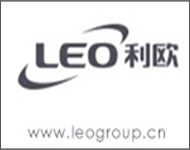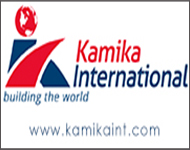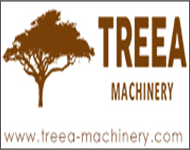- Construction Nears for ELCT Facility Backed by Samia’s 250 Million Boost
- KeNHA Kicks Off Construction of Major Kenya-South Sudan Road Project with AfDB Support
- Tanzania Government Allocates 100 Billion Shillings for Bridge Constructions in Lindi
- $46 Million Deal Signed for Crucial Isiolo-Mandera Road Construction Project
- Tanzania Government Set to Sign Agreement for Dodoma Stadium Construction
- Kenya Gears Up for AFCON 2027 with Major Stadium Upgrades and New Constructions
- AfDB Leads $1.2 Billion Financing Syndication for Tanzania’s SGR
- Government Kickstarts Sh8.1 Billion Equalisation Fund Projects across 34 Counties
- Tanzania Signs $35 Million Deal for Jangwani Bridge Project Construction
- Multi-Billion Road Project Set to Boost Thika’s Industrial and Economic Prospects
Canadian firm to raise Sh123m for rare earth mining
 Canada-based mineral firm Pacific Wildcat Resources plans to raise Sh123 million to finance the ongoing work at its rare earth and niobium project near Mombasa.
Canada-based mineral firm Pacific Wildcat Resources plans to raise Sh123 million to finance the ongoing work at its rare earth and niobium project near Mombasa.
The amount will be raised through a non-brokered private placement, the company president Darren Townsend said.
“The proceeds from the private placement will be used to fund additional resource definition work, including the preparation of an inaugural national instrument on total rare earth resource at the Mrima Hill Project, advancing metallurgical work on the Mrima Hill Project and for general working capital purposes,” Mr Townsend said.
In September, Pacific Wildcat completed the acquisition of stake in the rare earth and niobium project near Mombasa. The company took over Stirling Capital Limited Cortec (Pty) Ltd and indirectly acquired a 70 per cent interest in Cortec Mining Kenya Limited, the owner of the Mrima Hill niobium and rare earth project.
The firm also arranged a Sh252 million in debt financing concurrently with the closing of the acquisition by way of a non-revolving secured credit facility amounting toSh176.4 million and Sh75.6 million of additional unsecured loans.
Niobium is mixed with steel to create a strong alloy used in the construction of pipes for water and sewage systems and components used in various types of vehicles.
Rare earths are vital in manufacturing high-tech electronics products such as specialised miniature nuclear batteries, laser repeaters, super conductors and miniature magnets.
The company said in March last year it will drill at a new site in Kenya that has shown potential for rare earth deposits.
Pacific Wildcat said tests had established the presence of high grade deposits of rare earth on Kiruku Hill, just three kilometers from its current Mrima Hill Project site.
A global scarcity of rare earth has kept prices high. China, which accounts for an estimated 97 per cent of global rare earth supplies, has been tightening trade in the strategic metals, sparking a jump in prices. Japan, which accounts for a third of global demand, has been hard-hit by the scarcity and has been looking to diversify its supply sources.
Several firms are actively exploring for minerals at the Coast in a bid to ride on the increased global demand. Australia’s Base Resources is mining for Titanium in Kwale and expects to make its first shipment later this year.
Titanium is an important element for industrial, domestic and artistic applications. It is used for joint replacement, tooth implants and body piercing.
Base Resources expects the project’s annual production of titanium ore to include 330,000 tonnes of limonite (or about 10 per cent of the world’s supply) and 80,000 tonnes of rutile, or 14 per cent of global output.
It also expects 40,000 tonnes of zircon - another type of mineral. The firm said it had started negotiating sale contracts for products from the project, including limonite, rutile and zircon.
Source : abdas.org
Posted on : 30 Nov,-0001
Buildmart is Africa's leading directory and market news website for the building and construction industry | Kenya | Tanzania | Rwanda | Ethiopia
Exhibitions In Africa
- 26th Buildexpo Kenya 2025
KICC, Nairobi, kenya
16 - 18, July 2025 - 10th Afriwood Kenya 2025
KICC, Nairobi, kenya
16 - 18, July 2025 - 10th LightExpo Kenya 2025
KICC, Nairobi, kenya
16 - 18, July 2025 - 09th Minexpo Africa 2025
KICC, Nairobi, Kenya
16 - 18, July 2025 - 26th Buildexpo Tanzania 2025
Diamond Jubilee Expo Center, Dar-es-Salaam, Tanzania
24 - 26, Sep 2025 - 09th Afriwood Tanzania 2025
Diamond Jubilee Expo Center, Dar-es-Salaam, Tanzania
24 - 26, Sep 2025 - 09th LightExpo Tanzania 2025
Diamond Jubilee Expo Center, Dar-es-Salaam, Tanzania
24 - 26, Sep 2025 - 09th Minexpo Tanzania 2025
Diamond Jubilee Expo Center, Dar-es-Salaam, Tanzania
24 - 26, Sep 2025





















